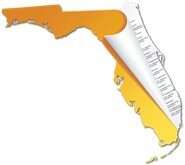Navigating Foreign Documents as a Florida Notary Public
Understanding the Challenge
Notaries in Florida have specific, limited duties defined by state law. They can perform notarizations like acknowledgments, jurats (oaths and affirmations), and attestation of photocopies. However, foreign notaries often have powers similar to attorneys, which can create confusion when a Florida notary is asked to notarize a document from another country.
Foreign documents may contain complicated language that asks the notary to do things beyond their legal authority. Notaries must be careful not to improperly notarize these documents out of fear or misunderstanding. This guide will help Florida notaries recognize and properly handle foreign documents.
Common Problems with Foreign Documents
Confusing Notary Wording
Foreign documents often include language that suggests the notary is verifying things they legally cannot. Some examples of this include:
“The notary certifies that the signer understands this document.”
“The notary confirms the signer has the legal authority to act for a company.”
“The notary verifies the accuracy of the document.”
A Florida notary cannot certify these things. However, their role goes beyond merely identifying the signer. They must also ensure that the signer is competent, aware of what they are signing, and not under duress or undue influence. If a document contains wording that requires the notary to make determinations outside of their scope, they should refuse to sign or modify the certificate to reflect Florida law.
Requests for Unauthorized Notarial Acts
Foreign documents may ask a notary to perform actions that are not allowed in Florida, such as:
“Legalizing” a signature or “authenticating” a document.
Verifying that the document is true or accurate.
Acting as a legal authority.
If a request is not listed under Florida’s allowed notarial acts, the notary must refuse to perform it. Additionally, the notary must confirm that the signer appears willing and able to execute the document without coercion.
Pre-Written Notary Sections That Don’t Comply with Florida Law
Many foreign documents come with pre-printed notarial statements. These often include terms or duties that Florida notaries are not allowed to certify. If the wording is incorrect, the notary should:
Cross out any incorrect language that does not apply.
Attach a Florida-approved notarial certificate that correctly describes the notarial act.
Explain to the signer why the changes were made to avoid confusion.
How to Handle Pre-Printed Notarial Language
How to Handle Pre-Printed Notarial Language
Review the document carefully and identify any incorrect language.
Politely inform the signer that Florida law requires specific wording.
Attach the appropriate Florida-compliant notarial certificate.
Documents in a Foreign Language
A Florida notary public is not required to understand the full contents of a document in order to notarize it. However, the notary must be able to read and verify the notarial certificate to ensure it contains proper language and conforms to Florida law. If the notarial certificate is in a foreign language the notary does not understand, the notarization must be declined, as the notary cannot confirm what act they are certifying.
Additionally, Florida law prohibits notaries from notarizing certain types of documents, regardless of the language used. These include:
Vital records such as birth, death, or marriage certificates (these must be issued by the appropriate government agency, not notarized).
Recordable documents (e.g., deeds or other instruments intended for recording in the public records) when the document is written in a language not understood by the notary, unless the notary can confirm the document is complete and appropriate for recording.
If a notary encounters a document in a foreign language and needs a general understanding of its content—such as verifying it is not a vital record or a prohibited recordable instrument—Google Lens can be a helpful tool. This mobile app feature allows the notary to take a photo of the document and instantly translate the text for reference purposes. While this does not replace professional translation or legal review, it can help the notary make an informed decision about whether to proceed or decline the notarization.
As always, when in doubt, the notary should err on the side of caution and seek guidance or decline the notarization to remain in compliance with Florida law.
Tips for Handling Foreign Language Documents
Ensure the notarial wording is in English and complies with Florida law.
Do not certify translations or the accuracy of the document.
If unsure, refuse to notarize.
Best Practices for Notarizing Foreign Documents
Confirm the Signer’s Willingness and Capacity
Florida notaries are responsible for ensuring that the signer is of sound mind, understands what they are signing, and is not being forced to sign. If the notary suspects that the signer is under duress or lacks capacity, they must refuse to notarize the document.
Ask the Signer What Type of Notarial Act They Need
The notary should never decide this for the signer. If the document does not clearly state whether an acknowledgment or a jurat is required, the signer must choose.
Use Florida-Approved Notarial Certificates
If the document’s wording is unclear or non-compliant, the notary should use a Florida-compliant notarial certificate. This ensures the notarization is legal and valid.
Where to Find the Correct Notarial Certificates
Online resources from the Florida Department of State
Notary associations that provide templates
Never Certify Anything Beyond Identity, Willingness, and Awareness
If a document suggests that the notary is confirming facts beyond identification, mental awareness, and willingness to sign, the notary should refuse or modify the notarial wording to be compliant.
Refer the Signer to an Attorney When Necessary
If a signer is unsure about the document, they should consult an attorney. Notaries are not allowed to provide legal advice or suggest changes to the document’s content.
When in Doubt, Say No
If a notarization request seems improper, outside the scope of Florida law, or feels uncomfortable, the best option is to decline. It is better to refuse than to risk legal trouble.
Final Thoughts
Handling foreign documents can be tricky, but Florida notaries must stick to the rules. By staying within their legal authority, using proper notarial certificates, and refusing improper requests, notaries can avoid mistakes and protect themselves from liability. The key is to stay informed and not be intimidated by complicated language. If a request doesn’t feel right—don’t do it!

